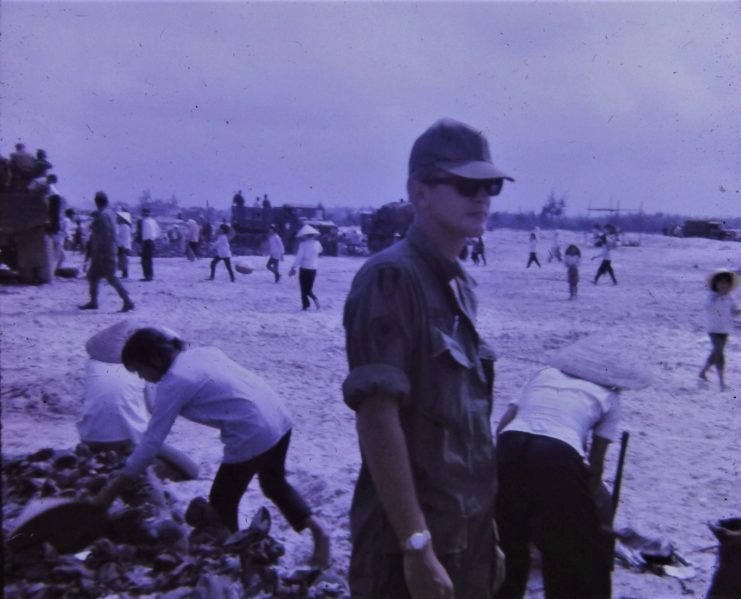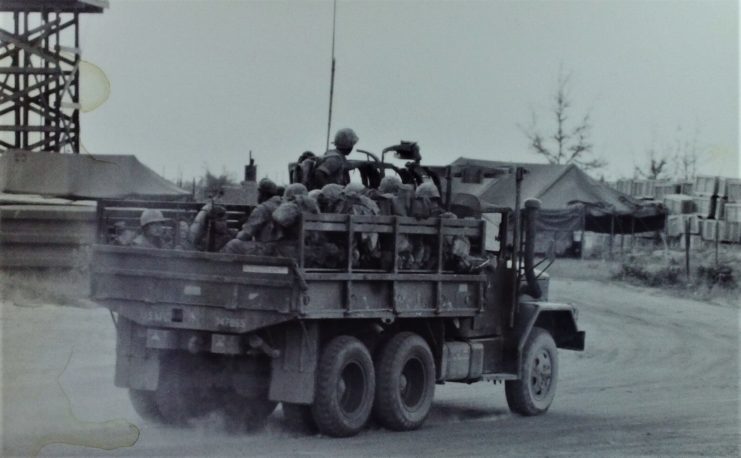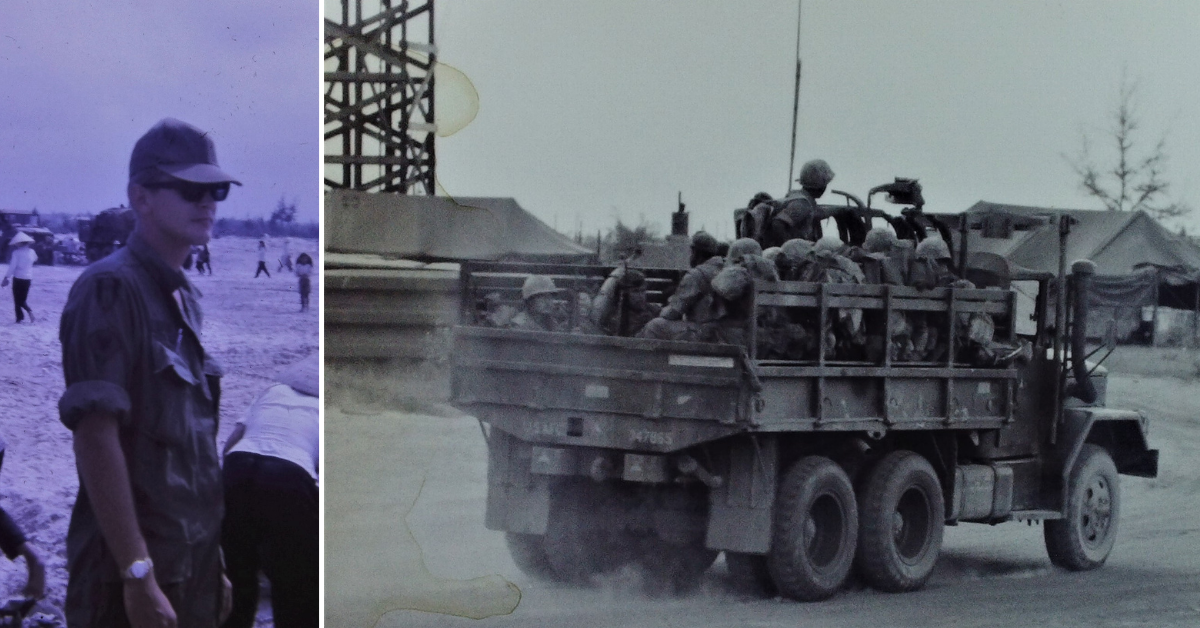By Jeremy P. Amick,
The Tet Offensive had been a nightmarish period for those serving in Vietnam in the early weeks of 1968. Andrew J. Trass noted in the book U.S. Army Campaigns of the Vietnam War: Turning Point, 1967-1968,” that fighting in many areas “was especially vicious, and throughout the country heavy rocket and mortar fire and demolition charges damaged airfields, logistical facilities, and supply routes. While the South Vietnamese government and its forces constituted the prime enemy target, U.S. units were swept into the turmoil.”
Medical personnel, such as the late Roger Buchta of Lohman, Missouri, who was at the time attached to the 18th Surgical Hospital in Lai Khe, witnessed the direct result of the offensive in the soldiers and civilian personnel treated at their U.S. Army field hospital.
In letters home, Buchta sought to avoid alarming his mother with regard to his own exposure to rocket and mortar attacks; instead, he shared vague details of the overall circumstances of the offensive and quickly transitioned to lighter subjects, such as the letter he had written to his local radio station back in Jefferson City, Missouri.
The Sunday News Tribune reported on January 21, 1968, one of the local radio stations had received a letter from Buchta stating, “In Lai Khe where I am presently stationed, the Armed Forces Radio Station is known as KLIK… It was a surprise when I first listened to this station and heard station identification.”
His letter continued, “For a moment I thought I was back home. But the sound of helicopters overhead and the almost constant roar of artillery told me this was not so. Nevertheless, it is still good to hear station KLIK, even though it is not in Jefferson City, but more than 10,000 miles away.”

KLIK is a news and talk radio station that continues to serve the central Missouri area. The KLIK station that Buchta mentioned listening to in Vietnam was part of the Armed Forces Radio Network Vietnam (AFVN), which was also referred to as “Radio Lai Khe.”
On February 5, 1968, Buchta wrote his family in Lohman, “There were rumors that the enemy was planning a ground attack on Lai Khe. As a result, the 18th Surgical and the 542nd have been on alert to retreat to the center of the camp in the event of a ground attack.” He added, “But nothing has developed.”
Buchta later mentioned that one of the most demoralizing circumstances on Lai Khe resulting from the Tet Offensive was the Post Exchange closing for several days since merchandise was not received. The interruptions in the supply network not only impacted soldiers unable to purchase assorted comfort items they had come to appreciate, but also resulted in the depletion of critical medical provisions.
Buchta’s platoon was able to dispatch two soldiers to Long Binh aboard a helicopter to acquire the needed medical supplies in addition to returning with two items that gained them renewed popularity among their fellow soldiers—”cigarettes and booze,” he remarked in one of his letters.
Enemy activity slowly subsided in the area and the hospital began to treat more civilians and South Vietnamese troops than U.S. casualties. By the end of February 1968, the hospital received word they would once again be moving and, in the first week of March, they were packing up and headed to their new duty location.
By March 11, 1968, Buchta and his fellow soldiers were at a military base a few miles south of the city of Quang Tri and making all the necessary preparations to get the hospitals up and running to receive the influx of casualties from the field.

The northernmost province of South Vietnam near the demilitarized zone, Quang Tri was located along the Thach Han River and, during the Vietnam War, became “one of the most contested areas in South Vietnam where Hanoi troops constantly tried to infiltrate across the borders from Laos and North Vietnam,” noted the Vietnam War Travel website.
Writing home on March 14, 1968, Buchta explained that “the hospital is up and is supposed to begin receiving patients Friday, March 15th. The hospital won’t be fully operational for about two more weeks. There is the problem of getting supplies. Many of the supplies are still at the airstrip, which is about a mile from our campsite. So, it will be awhile before the hospital begins to function smoothly.”
As the end of March approached, activity began to stir and the medic informed his family that the hospital had nearly reached its capacity. Buchta also noted that he had the opportunity to treat a rather unique patient.
“A trainer and his dog were hit by a mortar,” Buchta wrote on March 26, 1968. “Both of them got very superficial fragment wounds… (The dog) had some very small fragment wounds in his chest and right front leg. They were only skin deep.”
Skirmishing in the Quang Tri Province would continue for the next several weeks. However, as Buchta explained, many of the casualties brought into the hospital for treatment were not always the result of enemy contact.
“The other evening, for instance, a helicopter came in with seven wounded GIs and ARVNs (soldiers of the Army of the Republic of Vietnam),” wrote Buchta on March 31, 1968. “It seems that the men were warming themselves around a fire when a hand grenade was accidentally shoved into the fire.”
He bluntly added, “It’s really surprising sometimes to hear how many soldiers suffer non-combat injuries that just put them out of action.”
Jeremy P. Ämick writes on behalf of the Silver Star Families of America.
